SUSTAINABILITY MADE SIMPLE: 7 HOW-TO TIPS
Sustainability is the core element of our philosophy. We are convinced that solar energy is sustainable, but switching to solar power is only one step towards a sustainable lifestyle. You have to change your daily routines bit by bit. And solar power can be easily implemented and be very effective in reducing your carbon footprint and saving money at the same time.
For a start: How can you define sustainability? Simply put, sustainability means that you only consume as much of a resource as can simultaneously be regenerated or grown again. Thus, you keep nature and the environment balanced. Conserving resources is one of the easiest ways to achieve sustainability.
We also believe that smart and simple solutions will prevail. It will be just as easy to implement our sustainability tips as it is to use our storage systems. Let’s get started.
Tip 1: Reduce your energy consumption
Heat and cooling generation appliances are the biggest energy consumers in most households, and thus, you can save the most money here. Simple measures include, for example, washing your laundry at lower temperatures, which is sufficient with modern detergents, and avoid using the tumble dryer. You save a lot of energy by heating or cooling your rooms only when you need to and to moderate temperatures. Modern smart home solutions can also be helpful to control your air conditioner. An additional tip (only applicable for the tough ones among you): have cold showers. Conventional hot water heating consumes a lot of energy. If you cannot do without a hot shower, search for the new interesting solar power based solutions for hot water heating.
There are also further measures that do not affect your daily routines negatively: Do not use the stand-by mode for electrical appliances, do not leave the lights on in unoccupied rooms, switch over to LED lamps, and ensure your appliances have high energy efficiency class ratings.
Tip 2: Buy locally
It doesn’t always have to be organic food. Support the farmers in your region and help to preserve regional jobs by buying regional products. This also scores very high on sustainability as short transport distances from supplier to consumer significantly reduce the carbon footprint for these products.
Tip 3: Don’t throw away food
Far too much food ends up in the garbage. This is not sustainable. You can avoid food wastage with two simple tricks. Firstly: The best-before date on packaged food is the manufacturer’s guaranteed deadline by which the food can be consumed. Usually, food can be consumed beyond this date and a visual and olfactory test can confirm this quickly. Secondly: Plan your food shopping more sensibly. Do not overload your refrigerator with food supply lasting for several weeks. Think about what you need and want to eat in the next few days and adjust your shopping accordingly. A positive side effect of sensible shopping: a fridge that is filled with less food also uses less energy.
Tip 4: Do not use plastic bags for fruit and vegetables
Single-use plastic bags have two major problematic impacts on the environment: they are produced with fossil fuels and never decompose completely leading to increased plastic pollution. Single-use plastic shopping bags are gradually phased out from shops, however thin see-through bags for fruit and vegetables are still ubiquitous. They can be easily replaced by nets which every supermarket accepts these days.
Tip 5: Reduce your meat consumption
It is not necessary to become a vegetarian. Less meat in your diet helps to reduce your carbon footprint considerably and will also benefit your health. According to the World Wildlife Fund organisation, between seven and 16 kilograms of fodder are required to produce one kilogram of meat. Not so long ago, meat was only served on Sundays. So why can’t we do without meat for one, two or three days a week? This “Sunday roast” was something special and you might enjoy eating meat even more.
Tip 6: Buy quality items
You most likely have heard of the term “fast fashion”. It describes cheap fashion items that are designed to be worn only a few times. In the long run, buying cheap will be expensive for you. It also has a very negative impact on your carbon footprint. The quality of cheap throwaway goods is also bad compared to more durable, high quality and initially more expensive goods. It pays off to look out for quality and durability. This approach not only applies to fashion but almost any other product. A washing machine that lasts 10 years longer and at the same time consumes 30% less electricity is better for the environment as well as your household budget. Solar storage systems that are more energy-efficient and last longer are also a significant contribution to greater sustainability. Certified sustainability labels can help you to choose the right products.
Tip 7: Become more autonomous
The last tip is not easy to follow. Not everybody might be able to become more autonomous. But there are people who have means to change their lifestyle habits and become active. There are many areas where you can get started. Grow fruits and vegetables in your garden. You cannot be more local. If you cycle more, you are less dependent on petrol or electricity for your transport needs. Talking about electricity: owning a solar system with battery storage attached for self-consuming the generated electricity will make you more independent of energy suppliers and energy price fluctuations. RCT Power will be happy to advise you on any questions you may have concerning storage of solar energy.

